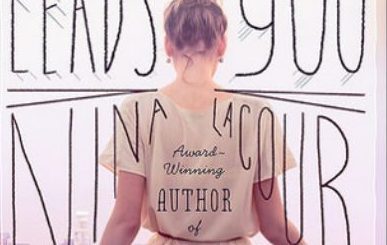Has anybody “scene” my gal?
That could be the tagline for the life of Emi Price, a cinematic set designer who’s set her sights on a future in the film industry, complete with a leading lady and a Hollywood-happy ending.
Fade in to the estate of the late Clyde Jones, a celluloid cowboy who, as Emi discovers in a letter he kept up the sleeve of a Patsy Cline record, desired desperately to connect with his estranged daughter. Beguiled by the history and mystery of it all, Emi and her best friend Charlotte decide to locate the letter’s rightful recipient. They may be crazy for trying, but they know it’s worth a shot.
Along the way, the searchers encounter the good, the bad, and the ugly. They don’t find Clyde’s next of kin, but they do discover the next generation: Ava Garden Wilder, who has inadvertently inherited not only her grandfather’s fortune, but his talent and good looks as well.
With her Rita Hayworth hair and Katharine Hepburn air, Ava quickly gets top billing in Emi’s heart. But it’s a heart that’s been broken over and over. Can Emi handle another retake? And if she pitches her idea for a romance, will Ava greenlight their relationship?
The most enjoyable element of this novel is the girls’ comfort with and confidence in their sexuality. Emi in particular never experiences a sexual identity “crisis” or any of the complications that too often come with coming out. For those of us who didn’t either, as odd as it may sound, it’s nice to know we’re not alone.
Aside from Emi’s sharp focus on her goals, both professional and personal, as a character she is always in soft focus, framed in static shots like publicity stills. So, too, is Charlotte, assigned a walk-on role: unbilled and unfulfilled. She is, essentially, a live-in advice columnist. Ava is similarly a rough cut character, her individuality inadequate and superimposed on Emi’s. This is caused, in large part, by dialogue that is stilted and wilted, which has the not-so-special effect of making the characters frustratingly fungible.
This dearth of depth of field extends to the story itself. The mystery mysteriously disappears, transforming what could have been a more nuanced novel into a Spaghetti Western, too loose and languid for my liking. It shouldn’t be this quiet on the set.
Regardless, there will, no doubt, be readers who will root for our flick chicks to become film lovers. This is especially true of those readers who, like the LGBTQ young adults the author told me galvanized this novel, “already [know] about the struggles [and] want an indication of a happier future.”
Fade out and proud.
